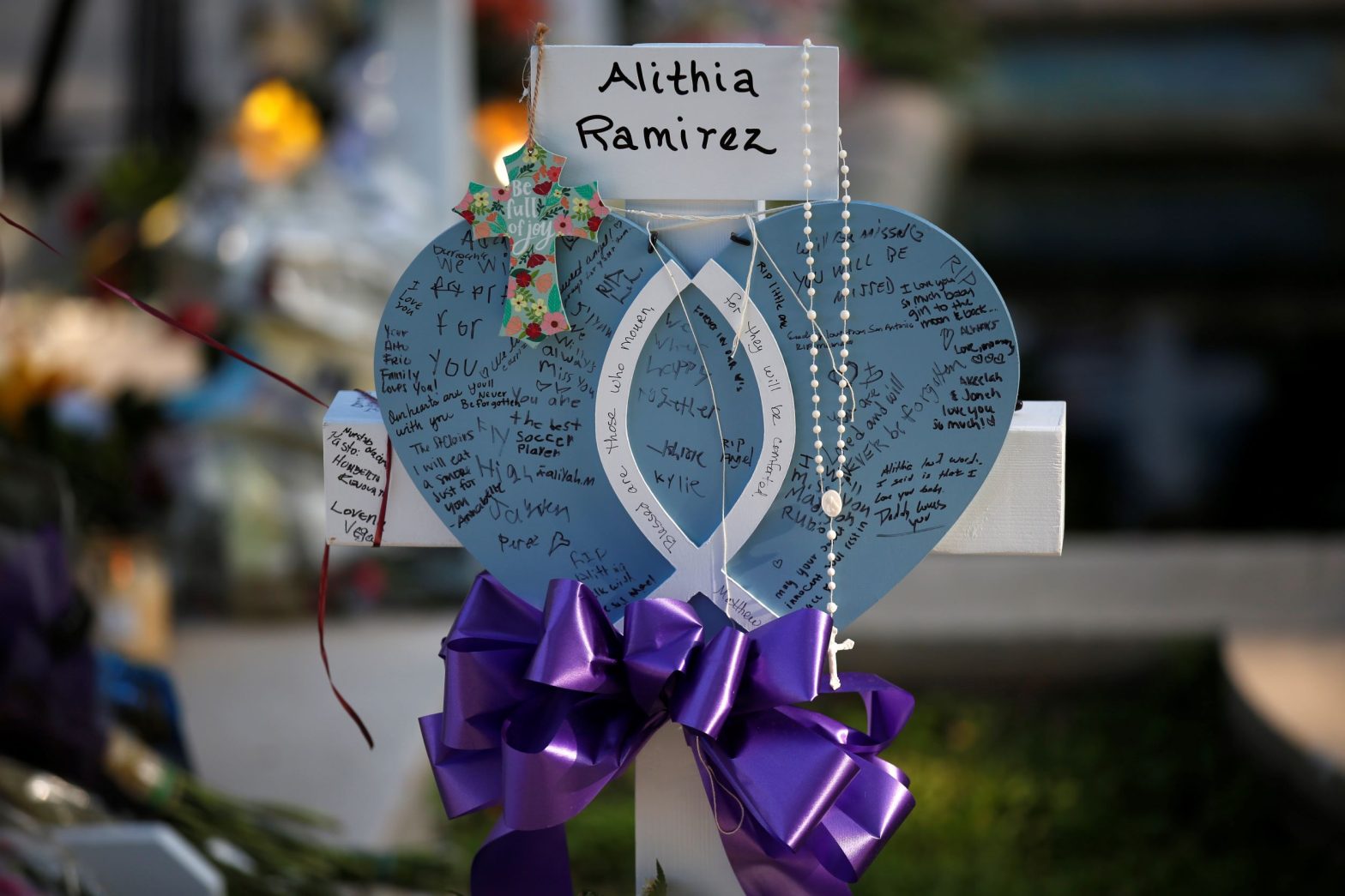Shooting Survivors and Families Express Outrage Ahead of Votes on Gun Reform

WASHINGTON — The heated emotions of gun violence and mass shootings continued during a congressional hearing Wednesday as lawmakers prepared for a key vote on gun reform this week.
Once again, the debate and the hearing before the vote groped for answers to a problem that has eluded solutions for generations.
The only difference in the House Oversight and Reform Committee hearing this time was the level of anger from family members whose loved ones were killed weeks before they testified to Congress.
They included Kimberly Rubio, the mother of 10-year-old Lexi Rubio, who was killed May 24 by a gunman with an AR-15 rifle who randomly shot students and teachers at Robb Elementary School in Uvalde, Texas.
“I left my daughter at that school and it’s a decision I will regret for the rest of my life,” her mother said.
She told lawmakers about waiting for her daughter to get off a bus at a convention center where the surviving students were being evacuated. Lexi never got off any of the buses.
She talked about her daughter’s good grades and hopes of becoming a lawyer. “That opportunity was taken from her,” Rubio said.
Other mass shootings this year included the May 14 attack by an 18-year-old gunman armed with a semiautomatic rifle who opened fire on shoppers and workers at a Tops supermarket in Buffalo, New York. The racially motivated shooting killed 10 and seriously injured three others.
Another was the June 4 Philadelphia shooting where 14 people were shot, three fatally, by multiple gunmen on a downtown street. The reasons for it remain under investigation.
A second witness during the congressional hearing was 11-year-old Miah Cerrillo, a fourth grader at Robb Elementary School, who described how she played dead as the teenage gunman went room to room shooting victims.
She hid behind her teacher’s desk as the gunman shot her teacher and classmates. Nineteen students and two teachers were killed during the attack.
Miah played dead after smearing blood from a deceased classmate on herself to make it appear she already had been shot.
“I thought he was going to come back into the room so I grabbed some blood and I put it all over me,” the child said. Afterwards, she said in her video testimony that she “just stayed quiet.”
The U.S. House was scheduled to vote as soon as Wednesday on a bill to reform gun laws.
Called the Protecting Our Kids Act, it would raise the legal age for gun ownership from 18 to 21. It would ban gun cartridges that can fire more than 10 rounds, prohibit “bump-stock” devices that enable guns to fire rapidly in succession and require serial numbers on “ghost guns” assembled from components that can be purchased online.
A Quinnipiac University poll released this week showed 74% of Americans support raising the gun ownership age to 21.
Statements of lawmakers indicate the Protecting Our Kids Act will pass in the House but the Senate is unlikely to vote on it because of Republican opposition.
Other proposals are pending but face more revisions in House and Senate committees before they are likely to reach a vote.
Some of the proposals, known as red flag laws, would make it easier for police or courts to take lawfully owned guns away from potentially violent persons. Others would require more extensive background checks before buying guns, require longer waiting periods before purchases and reduce the immunity from lawsuits for gun manufacturers.
Like all previous congressional debates, the arguments bounced between support for Second Amendment gun rights and concerns about safety for innocent persons.
Many Republicans held to the reasoning that if guns are outlawed, only outlaws would have guns. Democrats warned that easy accessibility to guns makes it unavoidable they will fall into the hands of violent persons.
Americans are 17 times more likely to get shot than residents of other developed countries, said Rep. Carolyn B. Maloney, D-N.Y., chairwoman of the House Oversight and Reform Committee.
“What America does have is widespread access to guns,” Maloney said.
Some of the worst threats come from assault rifles, she said.
“In many states, these weapons of war can be purchased by an 18-year-old by simply walking into a store,” Maloney said.
Rep. James Comer, R-Ky., accused some gun ownership opponents of making mass shootings “politicized for political gain.”
“I strongly believe there is a place for law-abiding gun owners,” Comer said. “Gun ownership is on the rise in America. People want to protect themselves and their families.”
The House hearing followed by one day a Department of Homeland Security bulletin from its National Terrorism Advisory System. It warned about a “heightened threat environment” this summer that could include copycat shootings.
“In the coming months, we expect the threat environment to become more dynamic as several high-profile events could be exploited to justify acts of violence against a range of possible targets,” the bulletin said.
Tom can be reached at [email protected] and @TomRamstack






















